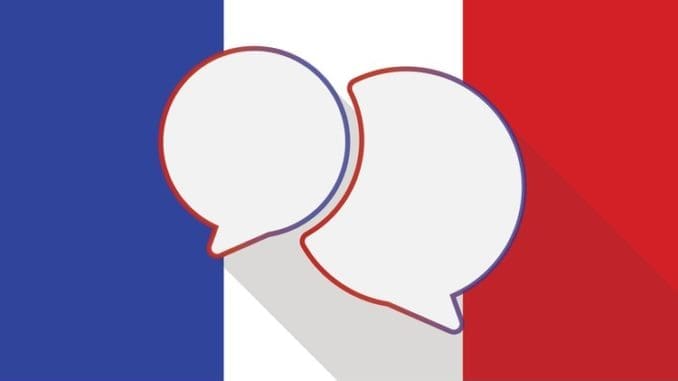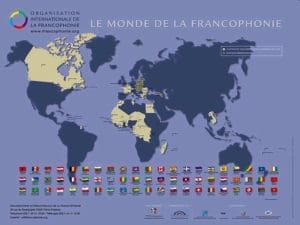
The French language has a rich history and a prominent position in our current society. It is the official language of 29 countries, across multiple continents and is spoken in some executive capacity in 84 countries. It’s also one of the six official languages used in the United Nations. The language is so widely used that it warranted the formation of the Organisation internationale de la Francophonie to represent any country with existing French culture.
French is a Romance language of the Indo-European family, derived from Vulgar Latin. The language as we know it now began being standardized in the 17th Century, as France expanded its colonial empire and spread the dialect worldwide. The language shares its origin with other Romance languages such as Italian, Spanish, Portuguese, and Romanian. What sets it apart is its distinct Gaulish and Old Frankish influences.
French is the 5th most widely spoken language in the and the 18th most commonly spoken native tongue. It is the go-to language for most who want to expand their repertoire and is one of the most widely studied languages in the world; here are some reasons explaining why.

Global Presence and Economic Opportunities
An estimated 300 million people worldwide, speak French. This widespread usage gives it global importance and makes it an appealing language to learn for both personal and professional reasons. Being the official language of many countries around the world, learning it can open up new economic opportunities in countries such as France, Canada Switzerland and parts of Africa.
About 40% of the Francophone population lives in Europe, with 51% in Africa and the Middle East, 8% in the Americas, and 1% in Asia and Oceania. French is the second-most widely spoken mother tongue among the European Union nations, as well as a popular second language among them. French is the most taught foreign language in the EU.
International Organizations
French is one of the official languages of international organizations like the United Nations, the European Union, UNESCO, and the International Red Cross. Knowledge of the language is advantageous for individuals seeking employment within these organizations and also for people who want to be aware of their activities.
Historical Ties
France has a long and…rich history with many other countries such as the USA, Canada and the UK which has resulted in entwined cultural legacies and long-standing partnerships. French and Belgian colonialism after the 16th century also forced their language and culture onto other continents. Their entangled histories have also affected the evolution of the language. While originally an amalgamation of various different languages, it diversified further, mixing with the local languages and borrowing words from others. To understand a culture, it’s important to learn the way they speak, and why they speak in that way. The simple existence of certain words and phrases can reveal things about their existence.
Education
The language has traditionally been associated with the quality of education, largely by their own making. It’s considered to be a prestigious language, learning which can be perceived as a sign of intelligence and as such many people opt for it. This is a remnant of the country’s colonialist legacy and should definitely be dissected further, but the ability to speak French can as of now open many educational opportunities, either as an application booster or geographically.
Art and Culture
French culture is almost inescapable in the world of art, literature, cinema, fashion and gastronomy. They boast many notable figures such as Victor Hugo, Jean-Paul Sartre and Agnès Varda, whose works are appreciated and studied globally. Knowing the language that these people originally worked in can help form a more profound understanding of their creations.
Travel
France is one of the most visited countries in the world, attracting millions of tourists each year to its many historic and contemporary attractions. A lot of other countries appealing for tourism also use French in their daily lives. Knowing the language can enhance the travel experience, making it easy to communicate with locals and enabling a deeper understanding.
Personal Enrichment
Learning a new language can be a rewarding and fulfilling experience. It can expand your horizons, learn about new cultures, and make connections. French is also a relatively easy language to learn for many English speakers. They are somewhat similar in terms of morphology, semantics, and pragmatics, but also quite different which makes it a fun challenge. This also makes it a good choice for people who want to learn a new language but don’t want to invest too much time or money.
Many English words have French origins which can be an interesting study in etymology. It is also exciting to explore new idioms and phrases that are a product of their own cultural contexts. The language does have a great number of homophones and pronunciation hurdles that can be difficult if you are used to the Roman script sounding a certain way. This may make it a little challenging but it is an enriching hurdle nonetheless.

Overall, there are many reasons why French is so widely taught. It is an expressive language with extensive historic and cultural implications. It is also useful for people who want to travel, work, or study in French-speaking countries. It is also revered by many as a beautiful and romantic language. If you are considering learning a new language, French is a great choice.

Be the first to comment